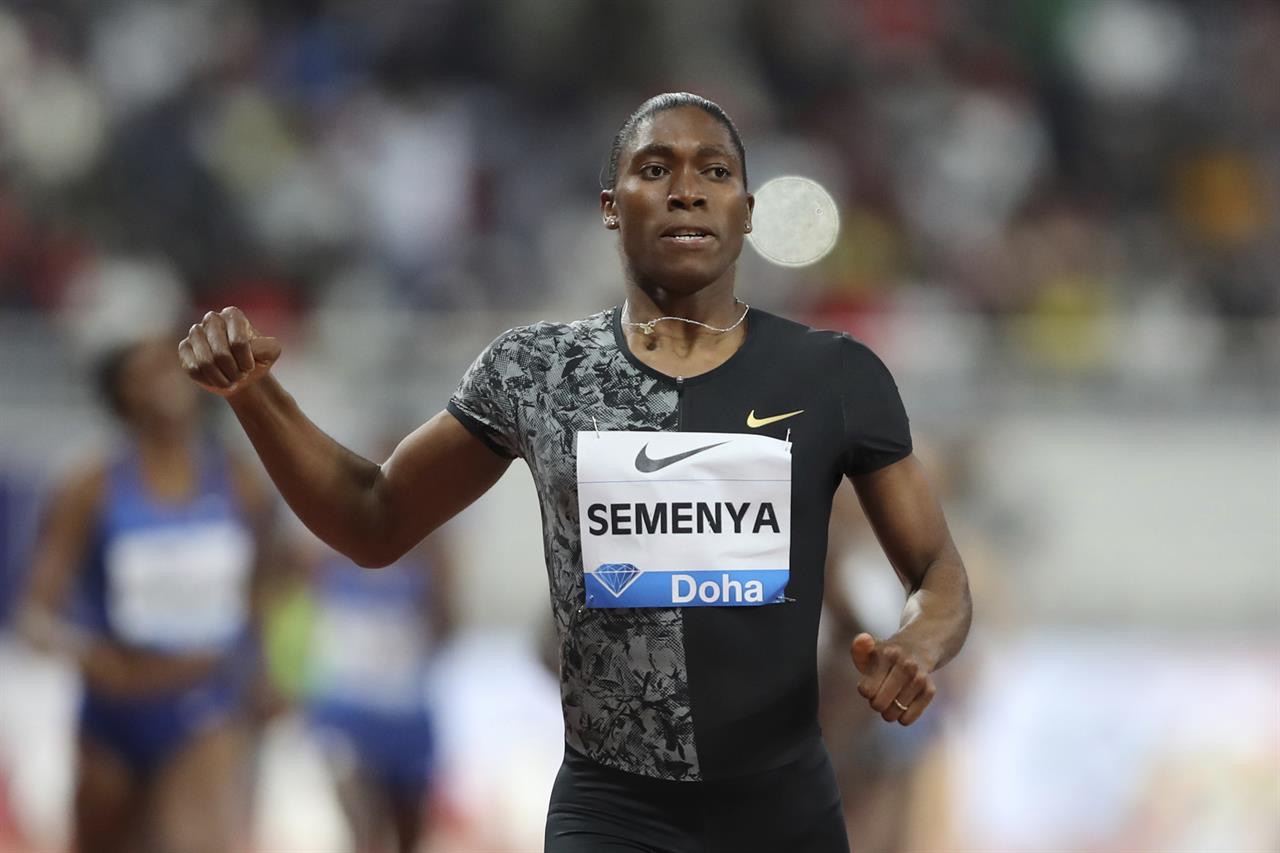South African athlete Caster Semenya was defiant Wednesday in the wake of the appeal she lost at Switzerland’s Federal Supreme Court against testosterone level restrictions for female runners.
SEE ALSO: COVID-19: FG Begins Payment of Relief Money to Athletes
The 29-year-old Semenya, who reportedly is intersex, has said she would not use medication to allow her to continue racing the 800 metres.
“A man can change the rules but the very same man can not rule my life,” the two-time Olympic 800 metres champion said on Twitter.
Semenya lost an appeal at the Court of Arbitration for Sport (CAS) last year against a rule change by the ruling body World Athletics.
The rule was that women with elevated testosterone levels must reduce them via medication if they want to compete in distances between 400m and a mile —- or run other distances.
The Swiss Supreme Court said on Tuesday that it could not look into the original ruling by CAS itself.
It however said it could only look into whether the CAS had violated general legal proceedings —- which was not the case.
“I have won this battle long ago. Go back to my achievements, then you will understand. Doors might be closed not locked,” Semenya added on Twitter.
South Africa’s government —- which has always strongly backed Semenya —- called the latest court decision “very unfortunate and offensive to the fundamental human rights of female athletes classified hyperandrogenic’’.
“We call upon all South Africans, Africans and the entire world to rally behind Caster in our quest to defeat injustice against women in sports and in particular African women,” Sports Minister Nathi Mthethwa said in a statement Wednesday.
The government said they were considering their next course of action.
World Athletics welcomed the ruling, saying its regulations are “a legitimate and proportionate means of protecting the right of all female athletes to participate in our sport on fair and meaningful terms’’.
But Human Rights Watch (HRW) slammed the decision in a statement, calling it “discriminatory’’ and saying it creates “a regime of discriminatory surveillance and medical interventions on women’’.
The Office of the United Nations High Commissioner has also previously recommended revoking eligibility regulations for women athletes like those enforced by World Athletics.
Semenya’s lawyers have noted in a statement that the court ruling means she would be prevented from defending her 800m gold medal at the Tokyo Olympics in the summer of 2021.

